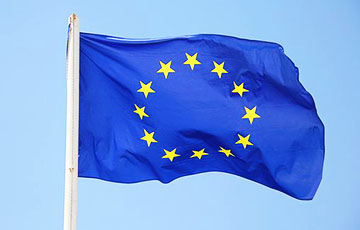FT: EU May Freeze Russian Assets Indefinitely
1- 24.07.2024, 12:04
- 2,882

The funds will be used to finance a loan to Ukraine in the amount of $50 billion.
The European Union is considering an indefinite freeze on the assets of the Russian Central Bank to address US concerns about plans to use the funds to finance a $50 billion loan to Ukraine, the Financial Times reported, citing a document outlining the NATO's plans.
It is noted that representatives of the 27 EU member states will meet on Wednesday, July 24, to discuss the European Commission's proposal for the "indefinite immobilization of the assets of the Central Bank of Russia."
According to the FT, this step, which will concern the European share of the assets of the Central Bank of the Russian Federation in the amount of 260 billion euros, "will provide G7 partners with the highest degree of predictability" for repayment of the loan in the amount of $50 billion. The plan is to repay the loans with income derived from the assets.
Now the sanctions by which these funds are frozen are reapplied every six months, raising concerns among EU allies that the loan will not be fully repaid.
Frozen Russian assets. Offer from the US.
The lack of such predictability has become a major stumbling block in reaching an agreement for a loan from the US, which is demanding “stronger guarantees” from Europe that the €190bn of assets that are stuck in the Belgian central securities depository Euroclear will be frozen until the loan is repaid, or until Russia agrees to reparations that would cover its value.
Although the document also mentions the second option — to extend the sanctions from six months to three years, officials acknowledge that only the first option is likely to receive Washington's approval.
“Option one is the only option. It is difficult, but it is the only way that gives certainty and is feasible,” said a person involved in the negotiations regarding both proposals.
It is reported that both options will require unanimous approval from the EU countries, which is an extremely difficult task, given that Hungary has already made it clear in the past that this issue needs to be raised at the level of EU leaders.
The G7 is also discussing how to share responsibility for the $50 billion loan and will address the issue at a meeting of G7 finance ministers on the sidelines of the G20 meeting in Rio de Janeiro.
The prevailing view is that countries will take on a share of the loan roughly proportional to their GDP: the EU and the US will each contribute $20 billion, with Canada, the UK and Japan contributing the remaining $10 billion.
According to two European officials, if EU countries do not support the extension of sanctions, the European Commission may first allocate a large part of the loan — "up to 40 billion euros."
Once other countries have committed, their share can be adjusted to a smaller amount.











